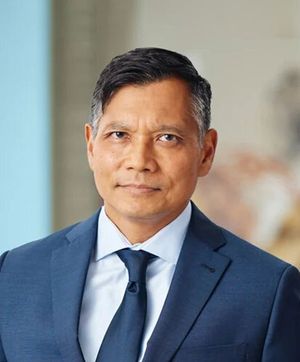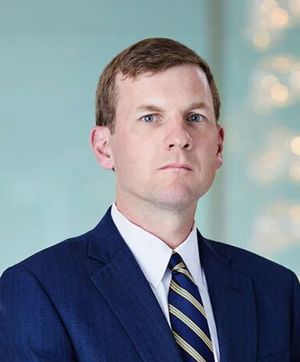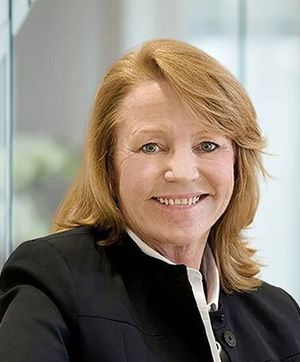Recent trends in US money laundering prosecutions indicate DOJ priority shift
This is an Insight article, written by a selected partner as part of GIR's co-published content. Read more on Insight
The core federal statutes regulating money laundering were enacted in 1970 with the passage of the Bank Secrecy Act[1] and in 1986 with the passage of the Money Laundering Control Act.[2] Several significant laws have also amended this existing framework, such as the USA PATRIOT Act.[3] These laws criminalise certain financial transactions associated with criminal activity and require financial institutions to take steps to prevent that activity.[4]
Prior DOJ guidance
As the statutory framework has grown, the US Department of Justice (DOJ) has sought to coordinate its various components’ efforts to address the problem of money laundering both within the United States and globally. The Money Laundering and Asset Recovery Section (MLARS) leads the DOJ’s anti-money laundering (AML) efforts, often collaborating with other Criminal Division sections and US Attorney’s Offices in the appropriate jurisdictions.
In addition, the DOJ has deployed specialist units to keep pace with the ever-evolving tactics used by criminal enterprises. For example, in response to the growth of the cryptocurrency industry and the proliferation of digital assets, in October 2021, the DOJ announced the creation of the National Cryptocurrency Enforcement Team to leverage and coordinate existing expertise to address criminal activity involving cryptocurrency.[5]
In January 2020, the DOJ updated the portions of its Justice Manual (previously known as the United States Attorneys’ Manual) in respect of money laundering prosecutions.[6] One of the chief goals of those changes was to ensure the application of the money laundering statutes in a consistent manner and to centralise the review and approval for prosecutions under the Money Laundering Control Act within MLARS.
More recently, MLARS and the DOJ Fraud Section partnered to launch the Corporate Whistleblower Awards Pilot Program on 17 September 2024.[7] The programme offers monetary awards to incentivise whistleblowers to report corporate misconduct to the DOJ in four areas: ‘(1) certain crimes involving financial institutions, from traditional banks to cryptocurrency businesses; (2) foreign corruption involving misconduct by companies; (3) domestic corruption involving misconduct by companies; or (4) health care fraud schemes involving private insurance plans’.[8] The DOJ’s guidance on corporate criminal enforcement remains highly relevant to its prosecution of money laundering and related offences, as corporations have increasingly found themselves in the ambit of criminal money laundering prosecutions and investigations.
Finally, some have seen the recent personnel changes in MLARS leadership as a sign that the DOJ hopes to make money laundering prosecutions both more aggressive and more efficient.[9] At the tail end of the Biden administration, MLARS released a new 2025 edition of the Asset Forfeiture Policy Manual, a publicly available compilation of policies governing the Department’s Asset Forfeiture Program;[10] however, through a series of presidential executive orders and Attorney General memoranda, the recently inaugurated Trump administration has re-emphasised the DOJ’s focus, including that of MLARS, to primarily target cartels and transnational criminal operations (TCOs) rather than cryptocurrencies, international corporate crime and foreign corruption.
On 5 February 2025, the new Attorney General, Pamela Bondi (AG), directed DOJ prosecutorial resources to bring charges against cartel and TCOs to pursue ‘total elimination’ of these entities.[11] Guidance regarding which entities are considered ‘cartels’ has not yet been made public although it is anticipated that future Trump administration executive orders and AG memoranda may detail how the Office of Foreign Assets Control or the US State Department will officially designate identified entities as ‘cartels’ for future enforcement purposes, likely with the cooperative working groups in place with the DOJ, Treasury and other components. The AG also disbanded KleptoCapture, the DOJ’s Kleptocracy Team and MLARS’s Kleptocracy Asset Recovery Initiative.[12] These teams had been focused on targeting foreign official corruption, including Russian oligarchs, under the prior administration.[13]
Implementation of the new administration’s shift in focus is currently unknown. The ultimate effect is difficult to predict with certainty. It appears unquestionable that drug trafficking organisations (DTOs) and TCOs will be scrutinised under existing Foreign Corrupt Practices Act (FCPA) or money laundering enforcement. It is also likely, in the legitimate pursuit of ‘total annihilation’ of such criminal organisations, that peripheral support players who offer financial laundering services and other necessary support adjacent but critical to the conduct of the criminal organisations may also be the focus of investigative or prosecutorial action.
According to Syracuse University’s Transactional Records Access Clearinghouse, the DOJ brought more total cases under the prior Trump administration than under the Biden administration.[14] Similarly, the DOJ under the first Trump’s administration also brought higher FCPA enforcement in both fines imposed and the number of cases brought, according to Stanford Law School’s Foreign Corrupt Practices Act Clearinghouse.[15]
Consequently, contrary to some expectation, after DOJ completes the typical administration turnover, the new Trump administration may result in a higher total number of new money laundering cases.
New DOJ trends
The change in administration and its focus to target and capture money laundering and bribery acts that support TCO and cartel activity have been accompanied by the Biden’s administration’s prior robust efforts to investigate and prosecute money laundering offences. Several trends have emerged in the DOJ’s recent proclamations regarding money laundering and related offences:
- More aggressive prosecutions: the DOJ is increasing prosecutions that apply aggressive combinations of money laundering charges under the Money Laundering Control Act and wire fraud, securities fraud or tax fraud charges.
- Focus on international criminal organisations: the DOJ is refocusing its resources on prosecuting financial institutions and money services businesses for narcotics-related laundering offences and businesses owned by or that support cartels and other international criminal groups. Businesses with significant operations in Latin America will likely face heightened scrutiny.
- Sanctions evasion: the DOJ is targeting individuals and entities that aid international terrorist and criminal organisations and hostile foreign state actors who are finding increasingly evasive ways to avoid sanctions and participate in the global economy. For countries and regions that the Trump administration finds adversarial, extensive sanctions enforcement is likely on the horizon.
Recent DOJ prosecutions
The DOJ has intensified its use of money laundering charges to increase potential criminal penalties, especially in fraud and tax cases. In the past, prosecutors have used criminal charges such as wire fraud to expand the DOJ’s jurisdiction, or added charges with a longer statute of limitations, such as securities fraud (six years) or bank fraud (10 years). In a somewhat similar way, the DOJ is increasingly adding violations of 18 US Code (USC) Section 1956 (Laundering of monetary instruments – a maximum penalty of 20 years) and violations of 18 USC Section 1957 (Engaging in monetary transactions in property derived from specified unlawful activity – a maximum penalty of 10 years) to lengthen potential sentences faced by defendants who have been charged.
For example, in March 2023, the US Attorney’s Office for the Southern District of New York (SDNY) unsealed a 12-count indictment charging Ho Wan Kwok and Kin Ming Je with, among other crimes, wire fraud, securities fraud, bank fraud and money laundering in connection with their alleged participation in an offering of unregistered and fraudulent securities.[16] The indictment alleges a sprawling conspiracy that began in 2018, wherein Kwok, Je and others defrauded thousands of victims of more than US$1 billion.[17] The government alleges that the two defendants solicited investments in various unregistered entities and programmes through false statements and representations to hundreds of thousands of Kwok’s online followers.[18] Kwok faces imprisonment for up to 195 years and Je faces up to 215 years; of the total potential sentences, 55 years stem from money laundering offences for each defendant. Additionally, in the six months from September 2022 to March 2023, the government seized approximately US$634 million, which it will seek to forfeit as proceeds of the illegal enterprise.[19]
As another example, in February 2024, federal prosecutors unsealed an indictment against three defendants, including a Russian oligarch (Andrey Kostin) and two US citizens, for two separate schemes to evade sanctions and launder funds by using a series of shell companies and strawmen to access the US financial system to operate, maintain and improve two superyachts worth more than US$135 million and one Aspen property worth more than US$12 million.[20] Both of the US citizens were arrested in Austin, Texas, and Kostin remains at large in Russia.[21] The indictment alleges conspiracy to violate the International Emergency Economic Powers Act (IEEPA) and conspiracy to commit money laundering. Each of the US defendants face up to 60 years in prison, and Kostin facing up to 80 years. The conspiracy charges to commit money laundering and violate the IEEPA both carry a maximum sentence of 20 years.
Growing pause in federal bribery and anti-corruption prosecutions
The Justice Department and defendants have begun requests for a pause or delay in imminent anti-corruption and bribery trials following a Trump administration executive order that paused all new FCPA cases and required the Attorney General to review all existing investigations.[22] In one case from the US District Court for the District of New Jersey, the new acting US attorney for the district requested a 180-day adjournment on the day before trial was set to commence.[23] Two other FCPA actions – one in Florida and the other in Pennsylvania – also received requests by defendants to delay their imminent trial date.[24] In the Pennsylvania action, the defendant’s request for a continuance was already granted over the government’s objection.[25]
Money laundering prosecutions involving digital assets
In February 2025, Forbes estimates there are 13,703 digital assets with a total market capitalisation of US$3.2 trillion.[26] Regardless of digital assets’ value at any given time, it is clear that these assets have gained a massive, and increasing, role in the global economy and provide the latest vehicle for money laundering. Accordingly, DOJ prosecutors continue to closely watch the activities of major cryptocurrency actors.
In May 2023, a former Coinbase Global, Inc (Coinbase) product manager, Ishan Wahi, became the first cryptocurrency insider trader to serve jail time when he was sentenced to two years in federal prison for tipping his associates to cryptoassets before they were listed on Coinbase’s platform.[27] Coinbase’s worldwide reach leads to increased market prices for newly listed cryptoassets, and Wahi took advantage of his insider knowledge to enable millions of dollars in trades before new assets were listed.
More recently, the DOJ has targeted cryptocurrency market makers who allegedly manipulate coin value through ‘wash trading’, a practice where investors buy and sell swaths of a coin to artificially inflate activity to make the coin look like a better investment.[28] In October 2024, the US Attorney in Massachusetts charged 18 individuals for wash trading schemes ‘where an innovative technology – cryptocurrency – met a century old scheme – the pump and dump’.[29] The DOJ also secured guilty pleas from executives at the cryptocurrency exchange BitMEX for failure to maintain an adequate AML programme.[30] The executives knowingly instituted lax AML controls, flouting US regulations and ultimately allowing millions of dollars to flow through their platform from users that provided only an email address for identification.
While the Trump administration is expected to focus less on cryptocurrency enforcement actions than the prior administration, the DOJ may still turn its focus on other exchanges, fintech companies and crypto executives who operate in violation of US law, especially those who use cryptocurrencies to help facilitate cartel and TCO criminal activity.
President Trump’s decision to pardon Ross Ulbricht, the Silk Road founder who was sentenced to life in prison,[31] is an early signal of the administration’s willingness to flex its pardon power.[32] Ulbricht was convicted of distributing narcotics, distributing narcotics by means of the internet, conspiring to distribute narcotics, engaging in a continuing criminal enterprise, conspiring to commit computer hacking, conspiring to traffic in false identity documents and conspiring to commit money laundering.
New cartel and transnational criminal organisation enforcement
The AG’s recent memoranda to the DOJ included a policy to ‘decentralise’ prosecutorial authority away from Main Justice to US Attorney’s Offices (USAOs) for cartel and TCO indictments. The AG asserted that red tape (i.e., ‘bureaucratic impediments to aggressive prosecutions’) would be eliminated.[33] Accordingly, individual USAOs will have the ability to charge terrorism and IEEPA charges against cartels, TCOs and foreign terrorist organisations, as well as money laundering and racketeering charges against cartels and TCOs, without first needing Main Justice approval.
While consultation and notice are still encouraged in some instances, such as with the filing of terrorism charges against DTOs or TCOs, other areas of concurrence remain unchanged, as in the case of plea offers, sentencing and any proceedings under the Classified Information Procedures Act. Although this new delegation may result in more expedited charges, these types of cases will unquestionably involve significant investigative actions in the charging jurisdictions.
Perhaps the start of the new focus is best exemplified by the 24 February 2025 announcement of the extradition of the leader of the H-2 Drug Cartel from Mexico to face money laundering and narcotics trafficking charges.[34] Acting Eastern District of New York USAO leadership announced that they were ‘committed to working with [our] federal and international partners to bring leaders of cartels and transnational criminal organizations to justice in the United States and to hold them accountable for the death and destruction they have unleashed here and abroad’.[35] A representative from the Drug Enforcement Administration (DEA) noted that ‘[v]iolent drug trafficking organizations, like H-2, fuelled by unrelenting and callous greed have been saturating our communities with poison, death, and chronic devastation’, and the DEA had ‘unwavering determination to mitigate this evil and eradicate their terror and corruption from our streets’.[36] While the defendant had been initially indicted in 2016, and arrested based on a provisional arrest warrant in 2018, he was finally extradited by Mexico, no doubt after significant efforts by the State Department, the DOJ and their foreign counterparts, in late February 2025.
That same day, the DOJ announced extraditions of two senior members of the Barrio Azteca gang, a transnational criminal organisation allied with the Juárez Cartel, to face charges in the Western District of Texas.[37] They join 35 other Barrio Azteca members who were charged in an indictment with racketeering, money laundering, narcotics trafficking and murder, most of which have already pled guilty.
Significant court decisions
In April 2023, the Supreme Court held, as a matter of first impression, that the Foreign Sovereign Immunities Act (FSIA) does not immunise foreign states and their instrumentalities from criminal proceedings.[38]
Halkbank, a bank indirectly owned by Türkiye, was indicted in 2019 ‘for a multi-year conspiracy to evade economic sanctions imposed by the United States on Iran’. The indictment alleged that ‘Halkbank, with the assistance of high-ranking Turkish government officials, laundered billions of dollars of Iranian oil and gas proceeds through the global financial system, including the U. S. financial system, in violation of U. S. sanctions and numerous federal statutes’.[39] Halkbank moved to dismiss the indictment on the grounds that the general criminal jurisdiction statute, 18 USC Section 3231 (Crimes and criminal procedure), does not extend to foreign instrumentalities and, alternatively, that it was shielded from prosecution because of its status as an instrumentality of the Turkish state.
Judge Richard M Berman (SDNY) denied Halkbank’s motion to dismiss, finding in pertinent part that the ‘FSIA does not appear to grant immunity in criminal proceedings’ and that it is ‘axiomatic that where, as here, a District Court has subject matter jurisdiction over the criminal offenses charged, it also has personal jurisdiction over the individuals charged in the indictment [pursuant to 18 USC Section 3231 on district courts]’.[40] A panel of the US Second Circuit Court of Appeals affirmed, holding in pertinent part that even if the FSIA were to ‘confer[] immunity in the criminal context, the offense conduct with which [Halkbank] is charged would fall under the commercial activity exception to FSIA’.[41] The commercial activity exception to the FSIA is intended to deny foreign states immunity when they engage in conduct that is based on a commercial activity carried out in the United States.[42]
Justice Brett Kavanaugh, writing for the majority, affirmed the Second Circuit, holding that ‘[t]hrough the FSIA, Congress enacted a comprehensive scheme governing claims of immunity in civil actions against foreign states and their instrumentalities [and that] scheme does not cover criminal cases’.[43] The Supreme Court also affirmed the Second Circuit’s holding that the District Court has jurisdiction over Halkbank pursuant to 18 USC Section 3231.[44]
The Supreme Court, however, vacated the Second Circuit’s judgment regarding Halkbank’s common law immunity arguments and remanded on that issue.[45] The Supreme Court’s decision is likely to have broad ramifications for the global financial sector, particularly as foreign-owned banks and other financial institutions seek to continue using the United States’ banking and financial systems.
Conclusion
With the changeover from the Biden administration to the new Trump administration in full swing, there is a shift in priority for DOJ prosecutorial resources away from combating international corporate crime and cryptocurrency cases to the expressed goal of the ‘total elimination’ of DTOs and TCOs; however, companies whose businesses provided financial services of the kinds discussed in this chapter must continue to remain vigilant and ensure that they do not become unwitting vessels of the TCOs and DTOs.
As the DOJ’s focus mounts more pressure on more traditional sources of laundering of criminal proceeds, criminal organisations will turn to other methods of repatriating their profits and, if past be protocol, they will seek to make use of other financial vehicles and in the process may seek to use unwitting companies.
Given this uncertainty, it is critical for corporations to remain vigilant with how the United States implements these new orders in practice, ensure corporate compliance tools are up to date, consult with knowledgeable outside counsel with experience in conducting and supervising these kinds of investigations against DTOs and TCOs and become versed in any future decisions that might attract the watchful gaze of the DOJ.
Acknowledgement
The authors wish to thank Maxwell Weiss (associate) and Thaddeus R Kleckley (counsel) for their contributions to the chapter.
Endnotes
[2] Codified at 18 U.S.C., §§ 1956 and 1957.
[3] Uniting and Strengthening America by Providing Appropriate Tools Required to Intercept and Obstruct Terrorism (USA Patriot) Act of 2001.
[4] Bad actors are using digital assets and platforms to engage in criminal activity, including money laundering. In recognition of this activity, Senators Lindsey Graham, Joe Manchin, Roger Marshall and Elizabeth Warren co-sponsored the Digital Asset Anti-Money Laundering Act of 2023, which they proposed to address loopholes in existing anti-money laundering (AML) statutes and regulations. The proposed legislation, which has not been voted on, would, among other things, strengthen examination and review by the US Department of the Treasury, the Securities Exchange Commission (SEC) and the Commodities Futures Trading Commission (CFTC) of AML programmes and reporting obligations for entities regulated by the Treasury, the SEC and the CFTC. By December 2023, 12 additional Senators joined the original co-sponsors of the bill. See press release, ‘Warren Expands Coalition of Banking Committee Support for Bill Cracking Down on Crypto’s Use in Money Laundering, Drug Trafficking, Sanctions Evasion’, website of US Senator Elizabeth Warren (11 Dec 2023).
[5] Press release, ‘Deputy Attorney General Lisa O. Monaco Announces National Cryptocurrency Enforcement Team’, US Department of Justice (DOJ) (6 Oct 2021).
[6] See Justice Manual, Title 9: Criminal, 9-105.000 – Money Laundering.
[7] Transcript, ‘Principal Deputy Assistant Attorney General Nicole M. Argentieri Delivers Remarks on Newly Announced Corporate Whistleblower Awards Pilot Program at NYU School of Law’s Program on Corporate Compliance and Enforcement’, DOJ, Criminal Division (17 Sept 2024).
[8] Webpage, ‘Criminal Division Corporate Whistleblower Awards Pilot Program’, DOJ, Criminal Division (updated 1 Aug 2024).
[9] Ben Penn, ‘US Money Laundering Team Is at Crossroads as New Leaders Named’, Bloomberg Law (12 Oct 2022).
[10] ‘Asset Forfeiture Policy Manual 2025’, DOJ Criminal Division, Money Laundering and Asset Recovery Section
[11] Memorandum, ‘Memorandum: Total Elimination of Cartels and Transnational Criminal Organizations’, DOJ, Office of the Attorney General (5 Feb 2025).
[12] Id.
[13] Press release, ‘Attorney General Merrick B. Garland Announces Launch of Task Force KleptoCapture’, DOJ, Office of the Attorney General (2 Mar 2022).
[14] Statistics, ‘White Collar Crime Prosecutions for September 2024’, Transactional Records Access Clearinghouse (24 Sept 2024) (reflecting monthly white-collar criminal prosecution data and the six-month average for the same data over a 15-year period).
[15] Statistics, ‘Foreign Corrupt Practices Act Clearinghouse’, Stanford Law School.
[16] Press release 23-102, ‘Ho Wan Kwok, A/K/A “Miles Guo,” Arrested For Orchestrating Over $1 Billion Dollar Fraud Conspiracy’, US Attorney’s Office, Southern District of New York (SDNY) (15 Mar 2023).
[17] Id.
[18] Id.
[19] Id.
[20] Press release 24-065, ‘Sanctioned Russian Oligarch And Others Indicted For Sanctions Violations And Money Laundering’, US Attorney’s Office, SDNY (22 Febr 2024).
[21] Id.
[22] Executive order, ‘Pausing Foreign Corrupt Practices Act Enforcement to Further American Economic and National Security’ (10 Feb 2025).
[23] United States v. Coburn, No. 2:19-cr-00120-MEF, Dkt. No. 956 (D.N.J., Mar. 4, 2025).
[24] United States v. Hobson, No. 2:22-cr-00086 (W.D. Pa.); United States v. Zaglin, No. 1:23-cr-20454 (S.D. Fla.).
[25] Hobson, No. 2:22-cr-00086, Dkt. No. 101 (W.D. Pa. Mar. 6, 2025).
[26] Webpage, ‘Cryptocurrency Priced Today By Market Cap’, Forbes (February 2025) in February 2025.
[27] Press release 23-166, ‘Former Coinbase Insider Sentenced In First Ever Cryptocurrency Insider Trading Case’, US Attorney’s Office, SDNY (9 May 2023).
[28] Press release, ‘Eighteen Individuals and Entities Charged in International Operation Targeting Widespread Fraud and Manipulation in the Cryptocurrency Markets’, US Attorney’s Office, District of Massachusetts (9 Oct 2024).
[29] Id.
[30] Press release 24-244, ‘Global Cryptocurrency Exchange BitMEX Pleads Guilty To Bank Secrecy Act Offense’, US Attorney’s Office, SDNY (10 July 2024).
[31] Press release, ‘Ross Ulbricht, A/K/A “Dread Pirate Roberts,” Sentenced In Manhattan Federal Court To Life In Prison’, US Attorney’s Office, SDNY (29 May 2015).
[32] Jenna McLaughlin, ‘Trump pardons Ross Ulbricht, creator of the Silk Road dark web marketplace’ NPR (21 Jan 2025).
[33] ‘Memorandum: Total Elimination of Cartels and Transnational Criminal Organizations’ (see footnote 11).
[34] Press release, ‘Leader of the H-2 Drug Cartel Extradited from Mexico to Face Narcotics Trafficking, Firearms and Money Laundering Charges in Brooklyn Federal Court’, US Attorney’s Office, Eastern District of New York (24 Feb 2025).
[35] Id.
[36] Id.
[37] Press release 25-188, ‘Barrio Azteca Gang Leader and Member Extradited from Mexico to the United States to Face Charges Related to 2010 U.S. Consulate Murders in Juarez’, Attorney’s Office Western District of Texas (24 Feb 2025).
[38] Turkiye Halk Bankasi A.S. v. United States, 143 S. Ct. 940, 944 (2023).
[39] Id.
[40] United States v. Halkbank, Case No. 15 Cr. 867 (RMB), 2020 WL 5849512, at *4, *7 (SDNY Oct. 1, 2020).
[41] United States v. Halkbank, 16 F.4th 336, 340 (2d Cir. 2021).
[42] Amelia L McCarthy, ‘The Commercial Activity Exception - Justice Demands Congress Define a Line in the Shifting Sands of Sovereign Immunity’, 77 Marq. L. Rev. 893 (1994).
[43] Turkiye Halk Bankasi A.S. v. United States, 143 S.Ct. at 947.
[44] Id., at 951.
[45] Id., at 951–52.











